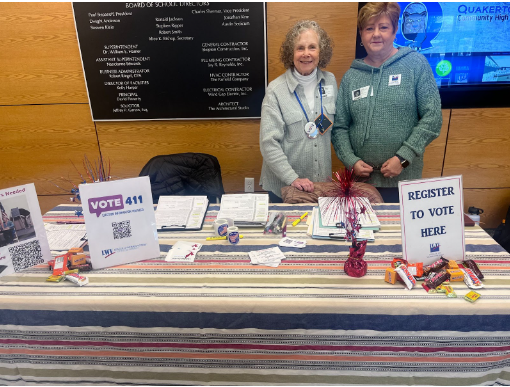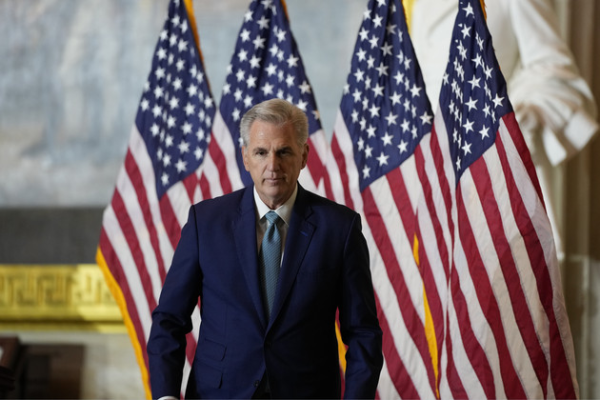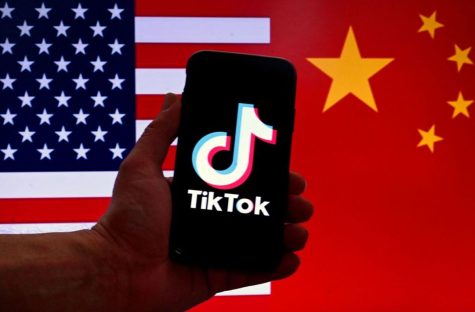Uigur Muslims: Where They Stand in Xinjiang
March 15, 2021
In January, the Trump Administration, in one of its last acts, declared that China was committing genocide against Uighur Muslims.
Uighur Muslims are described as a Muslim ethnic minority existing mostly in Northwest China, otherwise known as the Chinese province of Xinjiang. They are a nomadic Turkish group that is native to Xinjiang. This introduces tension with the Chinese Communist Party because it is an officially atheist party.
When the Chinese government sends Uighurs away, they claim to be sending them to a “labor transfer program;” however, those who have escaped claim they are sent to reeducation camps where they are subject to both mental and physical torture. The overall goal of these camps is to assimilate the Uighurs. The actions and crimes against the Uighurs have been described as “crimes against humanity” by Mike Pompeo, an American politician, diplomat, businessman, and attorney who served under President Donald Trump. Biden, after coming into office, has also agreed that this constitutes genocide. So far, the United States is the only country to use the term ‘genocide’ to explain the circumstances.
There are 11 million Uighurs living in China’s Xinjiang province, and at least one million people have been forced into labor and reeducation camps over the past three years. Any Uighurs outside of the camps are put under twenty-four-hour Orwellian-style surveillance in order to monitor their daily activities. This is entirely destructive to the overall well-being of a free society. It is an excessively harsh way of controlling citizens through propaganda. Keep in mind, Uighurs can be detained for things as simple as wearing a headscarf, having a beard, having more than two children, and traveling overseas for vacation.
Within the camp, Uighurs may also be forced to undergo intense product labor. These products are purchased by more than eighty global brands. This list of brands includes Apple, BMW, Gap, and Nike. While some brands have made statements saying they do not condone the actions happening against the Uighurs, many have failed to make changes and decisions in production that even seem remotely ethical to the public.
As for the Uighur women, they are forced into sterilization and abortions. They are almost always mandated to marry Han Chinese men and are labeled as a terrorist if marriage is refused.
Some believe that there are more than just Uighur Muslims in these camps and that it is possible that the government is extracting everyday citizens for these camps.
It is also known that people are put into the camps anywhere from weeks to years, or until they die or escape. As a condition of release, they are often sent to work in factories to produce international goods. After they are detained, they are forced to attend daily political indoctrination programs. These programs are where a percentage of the torture happens.
I explained these circumstances to a freshman at Quakertown Community High School, Sabine Muse, and I asked her if she was surprised by any of the information. She nodded and said “I was mostly surprised about the global brands that purchase products made by these people. When you see something that is made in China, you don’t always consider that it could have been made my someone who was detained for a reeducation camp. I always thought that everything was made in factories or by machines.”
International affairs such as this one can be difficult to understand on a small scale and personal level. There is not much the average person can do about a situation like this. At the moment, the most a person can do is get informed about the situation. Before jumping to conclusions or forming opinions, it is important to know and understand all there is to know. It is also crucial to be mindful of global brands that mainly base their production in China. Looking into if a specific brand is one that purchases products produced by the people in these camps can be beneficial. While these minor steps may not make a huge impact, they are the starting point to what could be a genuine change for the Uighur Muslim population.











